Why data quality matters in coffee digitalization: five tools that check for inconsistencies
Article written by Elisa Criscione
In the coffee sector, the promise of digitalization is compelling, presenting opportunities for improved traceability, streamlined operations, and enhanced sustainability. However, underpinning this optimistic vision is a fundamental yet often underdiscussed aspect: data quality. Without accurate and reliable data, even the most sophisticated systems and tools will fail to yield meaningful outcomes.
The principle of "garbage in, garbage out" applies universally, but in coffee digitalization, its implications are particularly significant. Data quality hinges on several attributes: accuracy, completeness, timeliness, and consistency. Missing or erroneous data can hinder compliance with regulations like the European Union Deforestation Regulation (EUDR), create inconsistencies with traceability, and erode trust across the supply chain.
Measurement variability is also a significant challenge in the coffee supply chain, as different countries and regions often use various units—such as kilograms, quintales, or pounds—which can lead to confusion and errors.
Addressing these inconsistencies is crucial to ensure data accuracy and improve overall data quality. As Niki Lewis from Bext360 aptly puts it: "If you aren’t getting quality, accurate data, then all of your models will be wrong. All of your reporting, any analysis, any insights you’re trying to drive from your data will be wrong and misleading."
In this article, we share five tools that embed automated data checks in their solutions, as well as a reflection on the importance of building a data quality culture within organizations.
Bext360
Bext360’s platform uses mobile app and blockchain technology to enhance transparency and traceability across the coffee supply chain. Data related to each stage of production, from harvest to the final roasted product, is recorded and verified in real time.
Key metrics, such as harvest dates, processing details, weights, and quality assessments, are entered into the platform by producers. Geolocation tracking, timestamps, and photo documentation create a digital trail that supports authenticity and accountability throughout the process.
Data quality monitoring: The platform incorporates a "stage gate" verification process, where data collected via mobile is reviewed before being pushed to the platform, minimizing duplications and errors and allowing any inconsistencies or missing information to be corrected immediately. Specific user access controls and logging also provide a clear trail of accountability, recording exactly who enters or verifies data at each step throughout the coffee supply chain.
Data quality checks: Data quality checks occur during data entry at the source, immediately after data is uploaded, and throughout the data lifecycle. The system detects incorrect data, prompts re-submission, and provides feedback, ensuring high data integrity.
Pricing model: Usage-based.
FARAMO
FARAMO (Farmer Risk Assessment and Monitoring System) developed by Global Risk Assessment Services (GRAS), is a customizable data collection and management tool designed to support data inputs from smallholders and farmers. It features a cloud-based database and an intuitive user interface, along with a mobile application that streamlines the collection, organization, and monitoring of critical farmer information, such as personal details, financial information, and geo-coordinate data.
FARAMO also offers additional modules tailored to specific needs, including greenhouse gas data and food security metrics, allowing users to customize the system according to their sustainability objectives.
Data quality monitoring: FARAMO includes automated checks for completeness and consistency to ensure data accuracy and reliability before finalization. The system’s real-time monitoring ensures that all uploaded information meets established standards through checks for required fields, format consistency, duplicate detection, and rule compliance. Immediate feedback allows users to correct discrepancies or missing information as they arise. Custom rules add flexibility by omitting unnecessary controls, such as farm area details when not required.
Data quality checks: Data quality checks occur during data entry, immediately after data upload, and throughout the processing cycle. The system offers feedback and prompts users for corrections when data does not meet quality standards.
Pricing model: Options available for one-time payment, usage-based, and subscription-based.
Orijin
Orijin provides a mobile app capable of offline data collection for farm inspections, processing, compliance checks, and farmer services. The platform aims to improve the operational efficiency of coffee agribusinesses and farmer organizations by capturing key metrics like geolocation data, processing details, and quality assessments. Operators can also access prior fermentation data, allowing them to track how often the coffee has been turned and monitor temperature changes.
Additionally, a matching data and analytics dashboard displays data in real time, enabling business decisions based on data-driven insights. Orijin also generates compliance, business, and impact reports to support market access and operational improvements.
Data quality monitoring: The platform includes automated checks against historical data, including data from previous years, to validate anomalies or differences between previous records to prevent erroneous entries. Validation steps are integrated into input fields to ensure entries fall within acceptable limits, such as verifying that farm polygons are not excessively large or overlapping.
Data quality checks: Orijin performs data quality checks during data entry at the source, immediately after data is uploaded, and in scheduled intervals throughout the data lifecycle. If data is found to be incorrect, users are notified to make necessary corrections.
Pricing model: Subscription-based.
Sirio
Sirio is a comprehensive data management platform designed for farmer organizations and agribusinesses to achieve operational efficiency, enhance compliance, and access differentiated markets. The platform includes personalized interfaces for organizational personnel based on their roles, featuring an offline-first mobile application for data collection in the field and a web console for centralizing data visualization, planning, coordination, and reporting.
Sirio helps organizations digitize processes such as internal controls, harvest, payments and credit management, sales, inventory, and quality control.
Data quality monitoring: Sirio uses anomaly detection and duplicate detection to identify and correct data inconsistencies, ensuring that information is accurate and complete. The platform conducts real-time quality checks that enable immediate error identification and correction, supported by geo-tagging and time stamps to maintain data accuracy.
Data quality checks: Quality checks are carried out at multiple points—during data entry, at scheduled intervals, and immediately after data is uploaded. Users receive prompts for corrections, and human support is also available to help users avoid errors during data input.
Pricing model: One time payment and subscription-based.
Verified & True
Verified & True (V&T), developed by Agroside Ltd, is a platform that leverages blockchain technology to provide traceability from harvest to branded consumer products. At its core, V&T uses GIS mapping of fields and digital inventory to create a digital twin for commodities, with data following each batch through all supply chain stages. The platform allows brand owners to apply verifiable QR codes to consumer items, documenting the journey of the product.
V&T also promotes data ownership for producers, supports financial inclusivity by incorporating digital wallets, and ensures compliance with evolving regulations. Additionally, the platform monitors for abnormalities in product yield, conversion ratios during the product life cycle, as well as deforestation-related changes in land use.
Data quality monitoring: The platform employs automated checks, manual reviews, validation against external sources, and real-time error notifications to maintain data accuracy and reliability. Audit trails and user access controls provide transparency, while geo-tagging and time stamps support traceability. V&T also verifies that the information aligns accurately with expected values and standards, ensuring that data inconsistencies are resolved effectively.
Data quality checks: Data quality checks occur during data entry, immediately after data is uploaded, during data processing, and at scheduled intervals. Users receive feedback on errors, and human support is available to assist with corrections, ensuring that data meets quality standards.
Pricing model: Usage-based.
Realizing the impact: beyond tools
While technological tools play an essential role in improving data quality, they are only part of the solution. A broader strategy that builds a culture of data quality is needed to create long-lasting impact. One critical aspect of this strategy is education. Stakeholders throughout the supply chain must understand why data quality is important and how it affects their operations. By fostering an understanding of the value of data quality, stakeholders are more likely to commit to maintaining it.
Incentives are another effective approach to encourage the adoption of data quality practices. Producers and cooperatives are more likely to embrace new systems when they can see tangible benefits, such as improved market access or the ability to comply with premium certifications.
In the race to digitalize coffee supply chains, data quality is often overlooked but is foundational to success. Accurate, reliable data enables better decision-making, strengthens compliance efforts, and enhances traceability across the value chain.
As coffee organizations embark on their digital transformation journeys, the call to action is clear: evaluate your data practices, invest in the right tools, and prioritize education and collaboration. By doing so, companies can lay the groundwork for a more transparent, resilient, and sustainable coffee sector—one data point at a time.
Elisa Criscione
Elisa is the Founder and CEO of Digital Coffee Future. Her expertise lies on coffee digitalization and the assessment of integration of strategic digital tools for companies and organizations.







